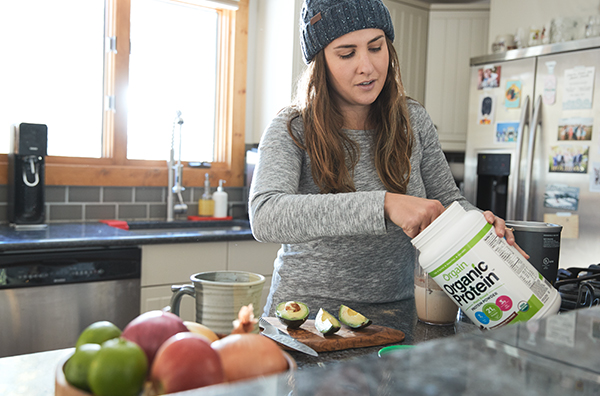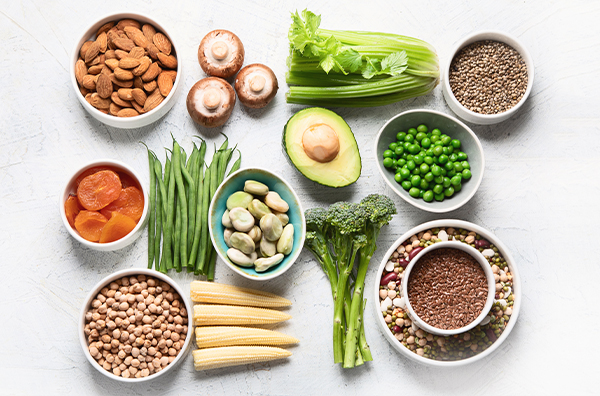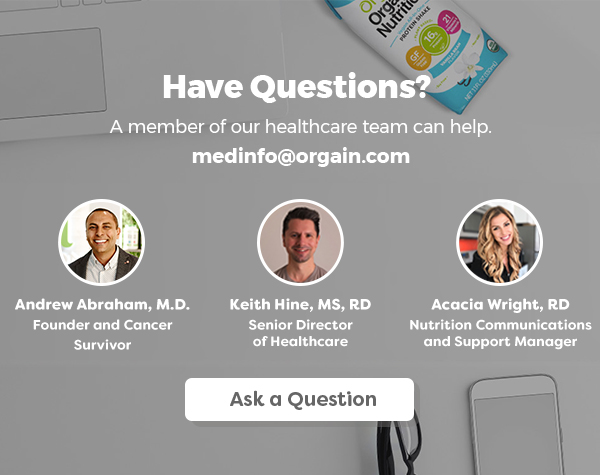
Continuing to Counsel While
Social Distancing

As healthcare professionals, we know social distancing is not just about protecting one’s own health, but also about protecting the health of those who are most at risk from COVID-19. Recent history has shown social distancing can significantly slow the spread of the disease. But, for healthcare professionals who continue to provide an essential service, this means turning to virtual platforms in order to bring effective counseling support and treatment to patients without direct contact. In doing so, it’s important for HCPs to be fully aware of the latest insurance policy updates and programs designed to help facilitate telehealth services.
In light of COVID-19, insurance coverage policies for telehealth have been rapidly changing. Medicare, commercial and private payers and some Medicaid programs have temporarily modified their policies and rules to expand access to care via telehealth during this national public health emergency. If you accept health insurance, check with each insurance company you are signed up with to understand their current policies.
With multiple videoconference platforms to choose from, it’s important to be aware that not all are secure. For example, your patients may be most familiar with Skype or FaceTime, but these are not HIPAA compliant. More secure, HIPAA-compliant platforms include VSee, PracticeBetter and Zoom, which can be downloaded free of charge. If you choose to use a less secure platform, you should notify patients that these third-party applications potentially introduce privacy risks. Be sure to take all steps to use available encryption and privacy modes when using those applications. Other platforms such as Facebook Live or chat rooms, such as Slack, should not be used as these are public facing.
For additional guidance, The National Telehealth Policy Resource Center provides the most up-to-date information on important coverage policy changes both federally and on the state level for a variety of healthcare professionals. The Academy of Nutrition and Dietetics also created a Telehealth Quick Guide for RDNs, which provides further guidance on practicing virtual counseling and policies related to billing and payment for medical nutrition therapy when delivered via telehealth.
Click here to tell us how your work has changed during the COVID-19 crisis and what Orgain can do to support you.

Orgain Clean-It-Up Recipe Contest

We’re excited to announce our first-ever Orgain Clean-It-Up Healthcare Professional Recipe Contest. Many of us are spending more time at home, getting creative in the kitchen and experimenting with new recipes. We want you to don your aprons and start creating your best Orgain recipes for a chance to win!
To enter, submit an original recipe and photo featuring commonly available ingredients or pantry staples and at least one Orgain product, and give us a description of the recipe and who you would recommend it to! Recipes can fit into any of the following categories: General Health & Wellness, Weight Management, For Kids, Diabetes, Cancer, Sports Nutrition/Performance, Immune Support, Clinical, GI Health.
Five winners will receive a $250 Orgain prize package and have their recipe analyzed using ESHA’s Food Processor® Nutrition Analysis Software and posted on the Orgain healthcare website! Winners will be judged based on creativity, use of clean and commonly available ingredients and ease of preparation.
Click here to submit your recipe! The contest entry period will end on Tuesday, June 30, 2020 at 11:59pm PT. Good luck and happy creating!

The Quality of Plant Proteins:
The Latest Research

Years of scientific research link a plant-based diet to lower rates of type 2 diabetes, as well as certain types of cancer and cardiovascular disease.1 For this reason, consumers are now seeking a greater variety of protein beyond animal sources. But, how does the quality of plant protein stack up to animal protein?
Protein quality has historically been defined as a measurement of the digestibility and amino acid composition of a protein, which varies between protein sources. However, in 2019, Dr. David L. Katz co-authored a comprehensive paper titled, “The Public Health Case for Modernizing the Definition of Protein Quality”2, which suggests redefining protein content by considering not only the amino acid profile, but also the impact on human health and the environment. According to Dr. Katz, the current definition of protein quality is misleading as it is “predicated on considerations of biochemistry and metabolism, rather than the net effects on human health or the environment of specific food sources of protein.” While the amino acid profile may differ in plant foods than in animal foods, plant foods have been shown to contain all 20 amino acids.3 Plant protein sources, like pea and soy, are known as complete protein sources since they contain all nine of the essential amino acids. The Academy of Nutrition and Dietetics states that protein from a variety of plant foods, eaten during the course of a day, can supply enough of all essential (indispensable) amino acids when calorie requirements are met.
With a growing number of our patients and clients embracing a plant-based diet, it’s important to take a holistic approach when evaluating their dietary intake. Protein is available from a wide variety of food sources, including animal and plant foods, but the quality of protein from plant sources often remains underestimated and misunderstood. Among practitioners, it’s been common practice to recommend complete animal-based protein sources, including dairy proteins. While these are still nutritionally valuable and should not be overlooked, it’s important to know that plant proteins can help patients and clients achieve the same health goals while being good for the body and the planet. That’s why Orgain protein powders and shakes are available in plant-based and grass-fed whey varieties – both containing complete amino acid profiles. They provide a convenient way to ensure adequate protein intake, no matter which source you recommend or your patients prefer.
Click here to learn more about Orgain Protein Powders.

1 Kim, H. et al. J Am Heart Assoc. 2019;8:e012865
2 Katz, DL et al. Adv Nutr. 2019;10(5):755-64.
3 Mariotti, F et al. Nutrients. 2019; 11(11): 2661., doi:10.3390/nu11112661.

Important Updates
As a science-based, health-focused organization, Orgain is following the most up-to-date guidance available regarding our work-related conferences. In accordance with these recommendations, attendance at such events will be suspended until further notice. For any questions related to this, please reach out to the Orgain Healthcare Team at [email protected].

Upcoming Live Webinars
During this time of social distancing, Orgain is offering more webinars to support distance learning and professional education.

Beth Beisel, RD (Presenter)
Approved for 1.0 CPEU for RDNs and DTRs April 23, 2020 at 2pm EDT
REGISTER HERE

Susan Weiner, MS, RDN, CDE, CDN (Presenter)
Approved for 1.0 CPEU for RDNs and DTRs May 14, 2020 at 2pm EDT
REGISTER HERE

Nanci S. Guest PhD, RD, CSCS (Presenter)
Approved for 1.0 CPEU for RDNs and DTRs June 18, 2020 at 1pm EDT
REGISTER HERE
Click here to view past webinars and earn CPEU credits!

Practitioner Testimonial
“I am very much enjoying being an ambassador. Ordering sample kits is a breeze, and my patients appreciate that they get to try a sample of your product before going out and buying a box for themselves.”
– Nicole
Sports Medicine Dietitian




